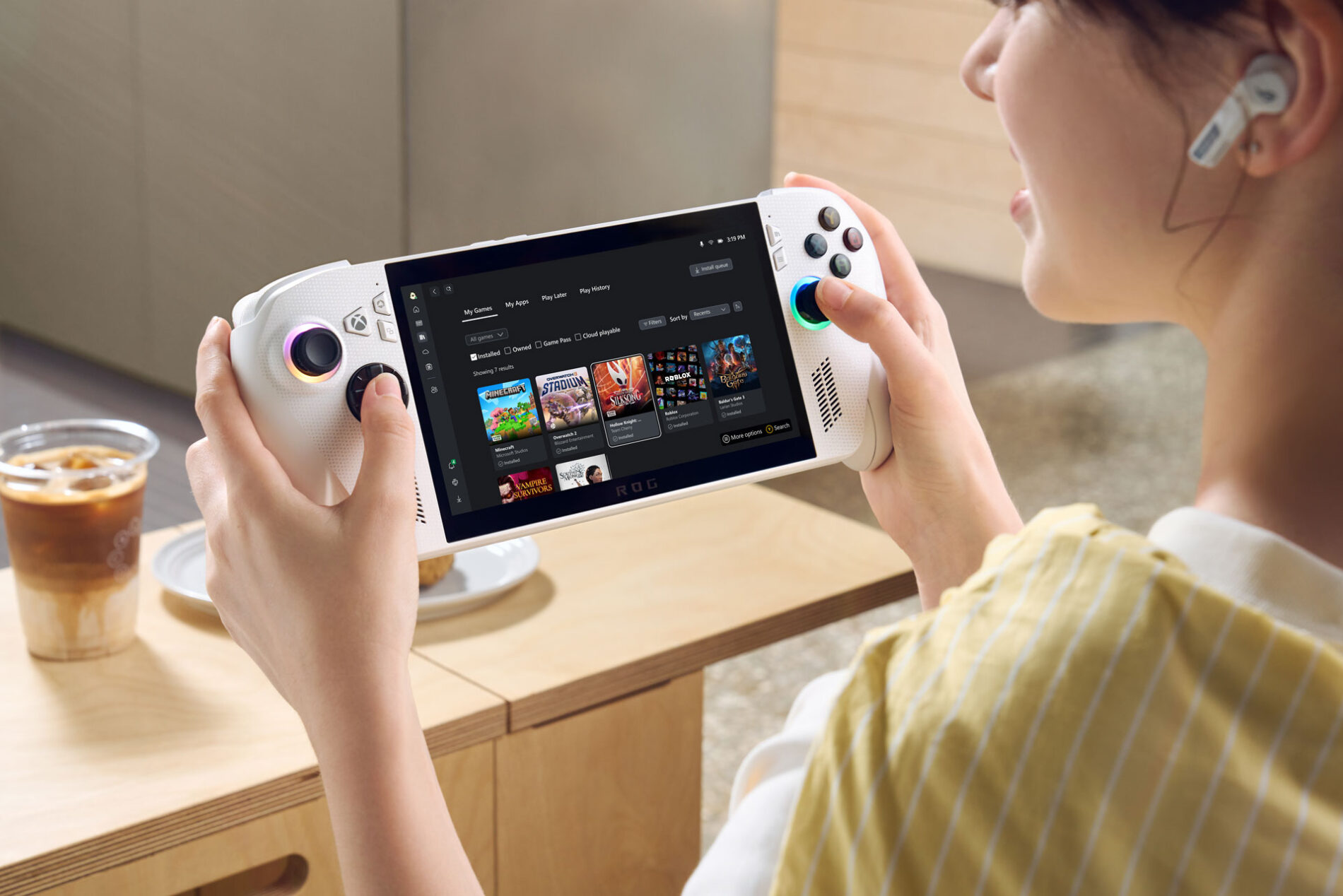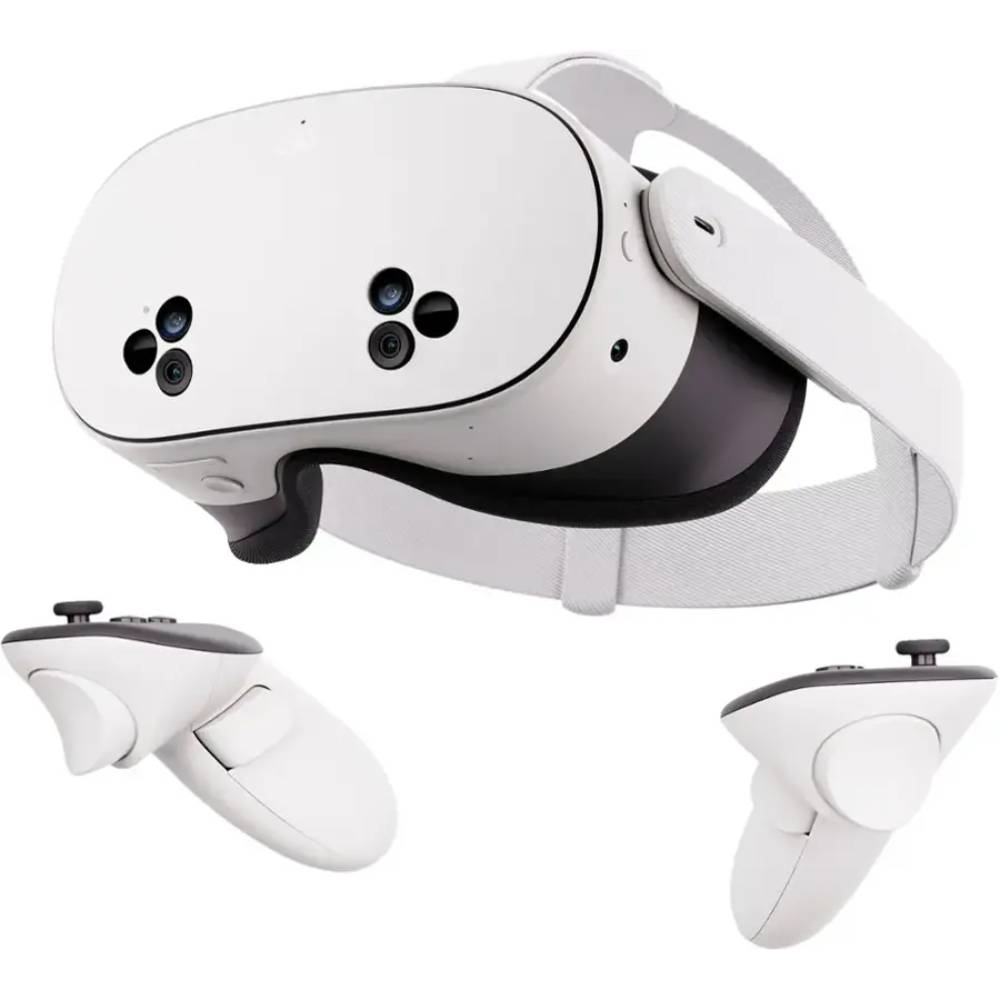
Xbox was once rumored to be working on its own dedicated handheld console — a direct answer to the Steam Deck and the PlayStation Portal. The device would’ve marked Microsoft’s first foray into a bespoke portable gaming console under the Xbox brand.
Now, according to a recent report, the handheld is dead. The project has been “essentially canceled,” with insiders confirming that Microsoft has shelved internal development to instead double down on third-party partnerships and software-first strategies, reports The Verge.
This marks more than the quiet death of a gadget. It’s an unexpected shift that could transform Xbox from a hardware-centric platform into something far more dynamic: A software ecosystem that thrives on alliances.
It’s not that Xbox is getting out of hardware entirely. It’s that Microsoft no longer needs to own every part of the stack to win.
The Xbox handheld lives on, just not from Microsoft
Microsoft and Asus revealed the ROG Ally and its higher-end sibling, the ROG Ally X, during Summer Game Fest 2025. They are Xbox-branded gaming handhelds that run on Windows 11 and boot directly into a custom, full-screen Xbox interface to deliver console-like simplicity with PC-grade flexibility.
The standard ROG Ally features a Ryzen Z2 APU, 16GB LPDDR5X-6400 RAM, a 512GB SSD, and a 60Wh battery. The Ally X pushes the envelope with a Ryzen Z2 Extreme processor, 24GB RAM, 1TB SSD, and haptic impulse triggers, all wrapped in Xbox-styled ergonomics and a 7-inch 1080p 120Hz VRR display.
And most importantly, they are Xbox-first in experience. They launch into a full-screen Xbox UI, hide the Windows desktop, and are optimized for Xbox Game Pass, Xbox Cloud Gaming, Remote Play, and more. You can also access Steam and other PC libraries — this is still Windows, after all — but Microsoft’s fingerprints are all over the interface.
According to Xbox CEO Phil Spencer, this collaboration represents “the tightest collaboration I’ve seen between the gaming organization and the Windows team in my three decades at the company.”
Why kill your own handheld?
Microsoft’s decision to cancel its handheld might seem strange. But building hardware is hard, expensive, and slow. And with companies like Asus, Lenovo, MSI, and Razer already shipping powerful gaming portables, Microsoft saw a better play: Become the ecosystem behind them.
By letting OEMs build the devices while Microsoft provides the platform, Xbox can scale faster, iterate quicker, and expand into niches that would be risky to tackle solo. Think Steam Deck-style devices, yes — but also streaming sticks, tiny PCs, modular accessories, and maybe even headsets.
Microsoft still plans a next-generation Xbox console (expected around 2027–28), but that no longer has to be the only kind of Xbox. Spencer has described a future where multiple devices from multiple companies, all certified and co-developed, coexist under the Xbox banner.
If “This is an Xbox” becomes a flexible definition, then anything from a $499 handheld to a VR headset could qualify.
VR is next, and Microsoft might beat Meta to it
That headset might already be in the works.
Microsoft is an early partner in Meta’s Horizon OS initiative, a program to open the Quest software platform to third-party headset manufacturers. Mark Zuckerberg named Asus, Lenovo, and Xbox as the first wave of partners.
And while Meta isn’t launching new hardware this year, Asus is rumored to be developing a Horizon OS-powered headset codenamed Taurus, with eye-tracking, face-tracking, and micro-OLED displays.

We’ve already seen the first crossover: A limited-edition Xbox-themed Meta Quest bundle that comes with Game Pass access and Xbox controllers. But the real prize would be a fully Xbox-integrated headset. One that offers console-quality cloud gaming and native VR in a single device.
With Meta Quest 4 delayed until 2027, Microsoft and its partners have a rare opening to define the future of hybrid gaming before Meta can dominate it again.
Xbox everywhere, for everyone
If all this sounds like Xbox is becoming a software platform that runs anywhere, well, that’s kind of the point.
From Series X consoles to Asus handhelds, from Meta headsets to browser-based Game Pass, Microsoft aims to make Xbox less about where you play and more about how you play. In a November 2024 GameSpot interview, Spencer put it best: “We want our games playable across as many screens as possible.”
That includes phones, tablets, laptops, smart TVs, future consoles, third-party handhelds, and VR. The big twist? Microsoft may have just made Xbox the most versatile gaming platform in the world, not by building more devices, but by letting others do it.
Ultimately, this means more choice for gamers. For Microsoft, more reach. And for Xbox? It might mark the beginning of its most exciting era yet.







